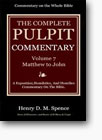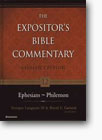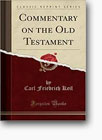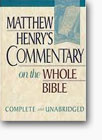Life in Christ
A Summary of Conditional Immortality
After over twenty years of faithfully upholding the traditional view, and with a pillow soaked with the tears of agonizing contemplation, I privately wrestled for ten plus years with the subject of our discussion. With complete confidence in the final authority of Scripture, I diligently searched to see "whether those things were so" (Acts 17:11) (Author).
CONDITIONAL IMMORTALITY. The most familiar verse in the Bible teaches the conditional immortality of believers and final destruction of unbelievers: "For God so loved the world, that he gave his only begotten Son, that whosoever believeth in him should not PERISH, but have EVERLASTING LIFE" (John 3:16). Conditional Immortality is the belief that immortality (not being subject to death) is conditional upon being in Christ: "And this is the record, that GOD HATH GIVEN TO US ETERNAL LIFE, and THIS LIFE IS IN HIS SON. He that hath the Son hath life; and he that hath not the Son of God hath not life" (1 John 5:11, 12).
ETERNAL LIFE IN CHRIST. Conditional Immortality maintains that eternal life is not the intrinsic possession of the soul, but the gracious gift of God, "Who ONLY hath immortality" (1 Tim. 6:16). We do not receive it by our first birth in Adam, but by our second birth in the second Adam, Christ! "For as IN ADAM ALL DIE, even so IN CHRIST SHALL ALL BE MADE ALIVE" (1 Cor. 15:22). One must have a second birth to escape the second death. Through our first birth in Adam we inherit sin and death; through a second birth in Christ we receive the gift of righteousness and life (Rom. 5:21). The wages of sin is death, an end of life; the gift of God is endless life (Rom. 6:23). The truth of Scripture is DEATH IN ADAM - LIFE IN CHRIST!
PLAIN WORDS, CLEAR PICTURES. Scripture denies any immortality of the soul, and only promises believers immortality through salvation and resurrection, thus unbelievers will be resurrected to damnation, not life (John 5:29), and will truly perish, burn up, and be consumed by fire, which is everlasting destruction, and the second death. "The SOUL that sinneth, it shall DIE" (Ezek. 18:4), and God "is able to DESTROY both body and SOUL in hell" (Matt. 10:28). ETERNAL FIRE turned Sodom to ASHES (2 Pet. 2:6; Jude 7), an "example" of future judgment when UNQUENCHABLE FIRE will "BURN UP the chaff" (Matt. 3:12). God is a consuming fire, and the fire of God consumes. A fire so powerful as to be called eternal, everlasting, and unquenchable will certainly burn up, destroy, and consume such highly combustible items as chaff, stubble, tares, cut thorns, and dried branches. These plain words in the Word and clear pictures in the Scriptures show that the Creator of Language has used His creation to clearly communicate, not confuse. The Comprehensive Coherency of Scripture teaches Conditional Immortality—it is the preponderance (weight of majority consensus) of the relative texts, and perspicuity (weight of clear expression) of the consistent and persistent Divine Vocabulary.
LIFE OR DEATH. Though Conditionalism (and its corollary—Destructionism) is not the majority view of Protestant or Catholic (or Muslim for that matter) "orthodoxy," it was the standard view of the first several centuries of Christian writers, the recurring contention of many noble searchers throughout church history, and the sincere interpretation of an ever-increasing number of conservative Bible believers today. Conditional Immortality is not justly represented by the negative label annihilationalism, which is a "straw-man" term employed by defenders of endless torment to avoid the daunting awkwardness of arguing against destruction (they won't say unbelievers will not be destroyed, but then redefine destruction).
THE DIFFERENCE. Our debate with the traditional view of endless torment is not concerning the resurrection or judgment. Conditionalism maintains the reality of both. Our debate is not concerning the intermediate state (as of the rich man and Lazarus), though it is relevant to it. It is not even if the punishment is everlasting (it certainly is), but whether Scripture consistently defines that punishment as endless torment (burning on and on), or everlasting destruction (burning up). Conditional Immortality contends that the revelation of Scripture on the character of God and nature of man, the penalty of sin and atonement of Christ, coherently teaches two destinies—LIFE or DEATH, endless life or an end of life, immortality or perdition, everlasting life or everlasting destruction, eternal life or perish.
A PERSONAL TESTIMONY
How the Author of Brother Bird Became Convinced of Conditional Immortality
After over twenty years of faithfully upholding the traditional view, and with a pillow soaked with the tears of agonizing contemplation, I privately wrestled for ten plus years with the subject of our discussion. With complete confidence in the final authority of Scripture, I diligently searched to see "whether those things were so" (Acts 17:11).
Four discoveries led to a departure from what I had always been taught:
1. I could not find Scriptural validation for the immortality of the soul, but rather abundant testimony against it.
2. I found that Scripture clearly and consistently taught that the wicked will perish, burn up, die, be destroyed, consumed, and be no more.
3. I was overwhelmed with the continual presentation of eternal, everlasting life as the gift of God given only to those in Christ, and this in constant contrast to the fate of the wicked who would finally and truly perish.
4. I was startled at how weak or contradictory our "proof-texts" were for endless torment — that "where the worm dieth not" was a direct quote from Isaiah 66:24 concerning "carcases" when the wicked would be "consumed;" that ever-rising smoke always bore witness to complete consumption (Sodom, Idumea, Babylon), not continual torment; that the story of the rich man and Lazarus is a satirical parable directed at covetous Pharisees, and is absolutely silent as to the nature or duration of the final punishment; that Scripture certainly depicts the "punishment" as "everlasting" (Matt. 25:46), but consistently defines that punishment as "everlasting DESTRUCTION" (2 Thess. 1:9; Matt. 7:13; Rom. 9:22; Phil. 3:19; Cf. Job 21:30; 2 Pet. 2:9, 3:7), not endless agony; that the last and most figurative book in the Bible does not contradict the literal language of God's jurisprudence in the previous 65 books, but contrasts those who are written in the book of LIFE from those who "have their part in the lake which burneth with fire and brimstone: which is the second DEATH" (Cf. Rev. 20:6, 15, 21:8).
After sharing these discoveries with other believers, I would confess that I was gradually being persuaded that "conditional immortality" is true. Further intense study continued to sway until I became fully convinced, not, mind you, by the writings of men, but by the powerful and plain words of God:
1. The fact that God is a consuming fire, and that when the fire of God fell in judgment it always consumed its prey, was impressive.
2. The silence in the prophets and epistles concerning torment in Hell (whether Sheol, Hades, or Gehenna) was compelling.
3. That the penalty for sin as revealed in the New Testament, the sacrifices for sin required in the Old, and the vicarious atonement for sin accomplished by Christ, all comprehensively pointed to a miserable end of life, not an endless life in misery, was confirming.
4. The persistent pictures in Scripture of chaff, stubble, tares, thorns, and dried branches being completely devoured, consumed, and burned up in unquenchable, eternal fire was unmistakably clear (chaff is not indestructible, especially in fire that is unquenchable).
5. That the Scriptural testimony is that God's holiness compels His mercy, not His wrath, caused me to praise the Just Judge Who has given such a wonderful written revelation of His righteous character.
6. But an exhaustive cataloging of every Scriptural usage (154 times) of some form of perish was CONCLUSIVE BEYOND DOUBT, revealing that the Divine Author never used any such word to describe a process without an understood end, and certainly not to describe endless torment.
I've been through four stages of departure from the traditional dogma: (1) private questioning; (2) growing persuasion; (3) conclusive certainty; (4) enthusiastic advocacy. Though I am often grieved and puzzled by the fiery antagonism and smoky arguments of many ardent defenders of perpetual torture, I am nevertheless thankful for any opportunity to share with others what I genuinely believe is the truth of Scripture.











Comments